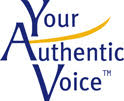 Speaking or performing in front of an audience is a dance. The speaker gives, the audience receives. Then the audience gives, and the speaker receives. When things are going well, it is a truly enjoyable and enriching experience for everyone . . . when things are going well.
Speaking or performing in front of an audience is a dance. The speaker gives, the audience receives. Then the audience gives, and the speaker receives. When things are going well, it is a truly enjoyable and enriching experience for everyone . . . when things are going well.
When they aren’t going well, it’s a different story. If you’re like me, the majority of your audience could be loving every moment of the experience, but you’ll notice the one with the frowning face, or closed body language, or worse yet, the rolling eyes. That person usually sits right up front, too. Uh oh.
Over the years, I’ve learned to embrace that person because I know it’s inevitable. “You can’t please all the people . . .” I don’t ignore the person. I just don’t try to change their mind. Once they get settled and decide to be there, or hear something they find interesting, they engage, unless you have someone who is really unhappy. But, I digress . . .
The point is, nothing “out there” is going to create those feelings of approval, appreciation and self worth. Nothing. That’s right, I said it. It’s all an inside job. The paradox is, when we meet our own needs for self worth, we are better able to fulfill our audience’s needs because it’s not about us! It’s about how we can serve our audience.
I have been recovering from an ankle fracture for almost five months. I’ve spent a lot of time alone, and sometimes I really want some emotional support. I feel “needy.” I’ll call a friend, and I’ll feel better for a while until the next time I feel needy. Rinse and repeat.
Then one day, it hit me. No amount of phone calls is going to fill that emotional need. And no number of “great jobs” from an audience is going to satisfy the desire for approval or appreciation.
And that’s not the point. Our job as speakers or performers is to bring value to our audiences. It’s about them. Receiving appreciation for that is the icing on the cake! It feels good, and it’s important to know we’re hitting the mark. Getting positive feedback is one measure of that. It certainly helps, as we grow in skill and confidence, to receive that acknowledgment. That’s why we get coaching and go to Toastmasters!
But, ultimately, outside approval cannot be the first place we go for our emotional sustenance. This only becomes more evident as we face tougher audiences with higher stakes. We need to know that what we’re sharing has value and the very act of sharing is our purpose. When we can let go of the outcome, paradoxically, we often get what we desire, and what the audience desires — appreciation, acknowledgement and the knowledge that we’ve imparted value.
So, what can support us? Consider these ideas:
1. Take an unbiased, nonjudgmental inventory of what you bring to the table. No doubt you have significant experience with your subject others can benefit from. You know something your audience has not heard of or considered. That’s enough.
2. Take the time to put your experience into a presentation that represents your truth and feels like you. In short, find your authentic voice and learn to share your message with clarity and skill. That’s enough.
3. Become aware of those times you’re looking outside of yourself for approval, appreciation or self worth. Just notice. Allow yourself to have whatever experience you’re having. That’s enough.
4. Realize the reason no external praise will ever be enough is because you
are already enough! You cannot fill a glass that is already full. Full of what, you might ask? ![]() Full of your knowledge, your wisdom, your beauty, your talent and your imperfections. That’s enough.
Full of your knowledge, your wisdom, your beauty, your talent and your imperfections. That’s enough.
5. Feel compassion for that person on stage who is risking the pain of rejection to express their truth and be of service to their audience. That’s you. Give yourself some empathy. That’s right – be kind to yourself and honor your courage. That’s enough.
6. Feel compassion for the person in the front row – the frowning human who is not having a good day. It must not feel very good to be in their shoes. Maybe it’s not so good to be in their life. Whatever the case, they are playing their role, and I like to think, keeping me honest and humble. That’s enough.
7. Know that very few have a platform. If you weren’t supposed to be there, you wouldn’t be. You’ve earned it. That’s enough.
In a world that often asks us to “suck it up” when facing rejection or negative feedback, reflecting on these ideas could seem self-serving or even narcissistic. Clearly, I think otherwise. There is nothing more engaging or inspirational than watching someone who can share their authentic self with love, clarity and confidence. This starts with embracing and honing their gifts. We gravitate to that and revel in it. By bringing out the best in ourselves, with an eye toward service and maintaining our humility, we bring out the best in our audiences.
I’ve seen people overcome significant obstacles by trying on these ideas, go on to share their message, and bring great value to the people they are reaching. By unleashing yourself from the need to have audience approval and focusing on how you can serve, you can fulfill the needs of your audience and yourself all at the same time! If this sounds good to you, I would love to support you. I can be reached at Andrea@AndreaBeaulieu.com.
Image courtesy of Flick user hobvlas sudonelghm

I had a really bad experience this evening in my social work class presentation at ASU. I cried in my speech…again. This has been a huge barrier for me and looking incompetent in front of my peers.
It was a train wreck. I will graduate with my BSW and I am 40 year old female. I am going through some midlife crisis. I pushed myself really hard through the last two semesters and bombed both presentations. I am an A student though with honors…I am really frustrated because I want my masters but I can’t seem to get a grip on this part of my life and it really holds me back. I wish to express myself and add meaning to peoples lives but I am so afraid of self expression and on the spot sharing.